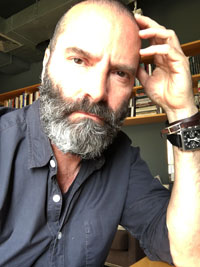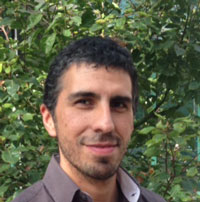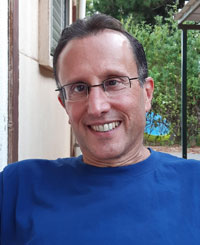Goodbye, Hello
After a couple of years of envisioning a space for a free exchange in all the different dimensions that intertwine psychoanalysis and our collective existence as subjects, and years of moderating the conversation given in this newborn space, it is time to pass the role and responsibility and to welcome a new cycle in the space.
We thought about this space as a place of exchange and thinking, as an agora for our institution, that could leave the center empty in order to let everyone meet in this space as equals, in words or in silence, to try to put words to this realm of experience, long edited out of many psychoanalytic institutions. We have realized the necessity of places like this, when in our daily practice the collective experience, the traces of history, and the never-ending political turmoil enters stubbornly into our consultation rooms and our lives, despite ourselves.
What can we relationally oriented psychoanalysts and therapists say about this?
These years have been about making the journey along this question. We recognize them as good years, though not always easy. The conversation survived the tides of intense human exchange in the realm of collective experience, prevailing as a free place to be used when desired and needed. It has been a true gift for us to have imagined this forum and made it happen. We have special gratitude for the support and collaborative process that Chana Ullman (Israel) and Steven Kuchuck (USA) gave us to birth and sustain the first period of this collective space. And we deeply welcome Mitchel Becker (Israel) to take the testimony of this space; a companion will soon join him as new co-chair.
We are glad that conversation has restarted after the numbness that the pandemic set in many of us. But we awaken with the beast of war again rising in Europe. Again we are interpellated to think about the world order we thought, clearly wrongly, to be established, with all the bad compromises and repetitions, teetering on the edge of an abyss. Perhaps we could have known it was coming to this. After all, since the beginning of this century the US has invaded sovereign countries, Afghanistan and Iraq, and allowed war disasters in Syria and Yemen. And Russia, after destroying Chechnya, had already invaded Georgia and Ukraine before, not to mention its brutal intervention in Syria and the destruction of Aleppo. Now here we are, with the cities of Ukraine facing the same prospect.
Do we have anything to say about all of this as psychoanalysts? It is unsettling to see what is evoked in different patient-therapist dyads of all backgrounds and persuasions. Memories of past wars, past generations’ troubles, and the fear of what’s coming – colliding, if they haven’t already, in the form of life literally endangered in a country being destroyed by delirious imperial ambition, soldiers killed and families hollowed, as we write these lines. “The center will not hold,” wrote the famous, recently departed American writer Joan Didion [quoting Yeats] about another period. But it feels even more so now. And each of us doing their best to hold a center for ourselves and for those in our care. How is that going?
When we started, we envisioned a space of an empty center, a center not taken, an open space to hold as a place for everyone who wanted it. With this idea in mind, we wish our colleagues and friends in Ukraine and also Russia, and any human place where lives are threatened and the notion of what the world was is collapsing, that this nightmare ends soon – to them and to all of us who have lived or witnessed the sword of political violence in any of its forms. Beyond any conceptual inscription, we have the conviction that places such as the Collective are necessary for helping to bring about a world in which, sooner than later, the great roads of human history will open for the passing of a free human being, fighting for better societies, as a president of a very small Latin American country envisioned in the early seventies of the last century. As history re-enters, we are faced once again to think what is yet to be thought.
As this unfolds, we believe that it is a proper time to let the next cycle of the Collective unfold. We will certainly stay in the neighborhood, available and contributing our thoughts as two members of the group.
We thank everyone who has shared this journey with us, all the Collective community and everyone who shares the sense of this sailing.
As the Beatles song said, we say goodbye and we say hello. And we say with gratitude, with faithful wishes and with a burning patience for what´s to come,
Yours always,
Eyal and Victor
Eyal Rozmarin (USA) and Victor Donas (Chile), Co-Chairs
 Eyal Rozmarin, Ph.D.
Eyal Rozmarin, Ph.D.
New York, NY
Email Eyal Rozmarin
 Victor Doñas, MD
Victor Doñas, MD
Santiago, Chile
Email Victor Doñas
Dear fellow IARPP colleagues,
I thank Eyal and Victor for the incredible creation of the Collective and for steering us during the endless stormy seas that are our lives. Eyal and Victor searched with us for the right place of discussion where learning and pondering can occur. Thank you for the times of growth and the times of deep frustration.
I and my future co-moderator take up our role with trepidation and joy. I first want to remind us of the original rationale and statement of purpose of the collective as written by the IARPP board:
This new group is for members who are interested in the psycho-social, that is, in the interaction between the social and psychological aspects of our lives. With so much of the world in turmoil, the social and political are pressing into our own and our patients’ conscious and unconscious experience, and into our offices. And we are all struggling to find ways to conceptualize, feel and work through them. We are creating this new interest group in the hope of opening a venue for those of us who are concerned with such questions to come and think together.
On the last page of Wilfred Bion’s most idiosyncratic work, A Memoir of the Future, he wrote:
People, rather than face the pains and frustrations of talk, fall back on murder or war as a substitute for discussion. … There is no substitute for the growth of wisdom. Wisdom or oblivion – take your choice.
We here in the Collective are in search of that wisdom born of psycho-social thought. So please join us in our discussion (by joining the Collective in the IARPP intranet). Go to MyProfile>
Features>E-lists
I can only hope that our discussion will make us wiser and maybe even strengthen the world’s belief that all humans are born with the right to “life, liberty and the pursuit of happiness.”
Mitchel Becker (Israel), Co-Chair
 Mitchel Becker, Ph.D.
Mitchel Becker, Ph.D.
Raanana, Israel
Email Mitchel Becker

